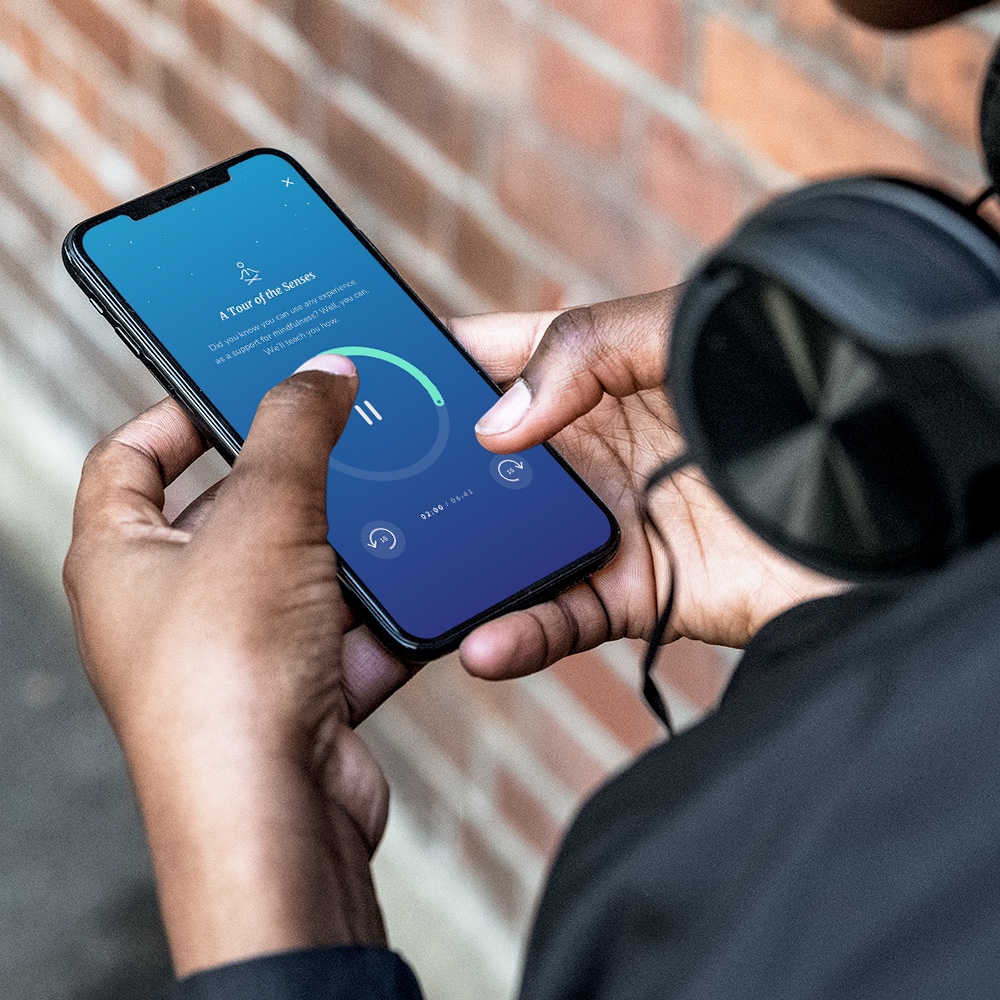Center for Healthy Minds Launches New Mental Health Research in Response to COVID-19 Pandemic
Daily life has been upended for the vast majority of the world. Health care and essential workers face risk, trauma and burnout. People are trying to cope with suffering and death from the disease. Communities already experiencing hardship – especially racial and ethnic minority and economically disadvantaged communities – are seeing greater disparity and stress.
Now more than ever, decision makers, families and organizations need evidence-based information to understand how to build resilience and maintain mental health amid stress and uncertainty.
This is why the Center for Healthy Minds at the University of Wisconsin–Madison is launching new studies to understand how the COVID-19 pandemic affects mental health and whether certain skills can help reduce stress and improve emotional well-being in a wide range of people.
“This pandemic is an immediate crisis and threat to well-being. We want to use the strategies used in the past in the lab and apply them to this real-world challenge.”

“There are very few stressors that the entire world experiences at the same time,” says Richard Davidson, Director and Founder of the Center for Healthy Minds. “This pandemic is an immediate crisis and threat to well-being. We want to deploy the strategies used in the past in the lab and apply them to this real-world challenge.”
Davidson adds that in times of hardship and distress, like we’re experiencing now, scientists can step up and shift their work for the greater good and to understand emotional health in ways that are not feasible in a lab setting. For instance, in the months following the terrorist attacks of 9/11 in the United States, prominent scientists led groundbreaking research on traumatic emotional memory.

"It has always been our hope that delivering practices through mobile technology can increase access to well-being strategies,” shares Simon Goldberg, a Center faculty member and assistant professor of counseling psychology at UW–Madison’s School of Education, who is leading a new study looking at the impact of a mobile app on well-being during the pandemic. “A crisis like this makes it clear why access is so important."
Goldberg and colleagues are leading a randomized controlled trial to learn whether a digital well-being app can improve mental health outcomes compared to people who don’t use the program. The project is in collaboration with Healthy Minds Innovations, the external nonprofit affiliated with the Center for Healthy Minds, and will draw from the Healthy Minds Program, which applies a science-based framework to train the mind in four domains: awareness, connection, insight and purpose.

"It has always been our hope that delivering practices through mobile technology can increase access to well-being strategies. A crisis like this makes it clear why access is so important."

For Center research, current studies underway are shifting data collection to account for COVID-19 and doing science remotely.
“It has been extraordinary to watch the dedication and teamwork of everyone at the Center pivoting their work to address emotional well-being during the pandemic,” says Heather Abercrombie, Scientific Director at the Center. “I knew the Center was a well-oiled machine, but as a relative newcomer, I hadn't yet had the opportunity to watch the entire group come together without breaking stride.”
In addition, scientists at the Center are modifying existing research projects and following up with people who previously took part in studies to determine whether learning well-being skills such as mindfulness meditation improves their mental health and ability to cope with stress at this time. The populations to be tested include educators, police officers, undergraduate students, and people with and without asthma to learn whether techniques such as mindfulness practices that have been learned are having a positive effect now.
For more information or assistance with your gift to the Center, please feel free to contact Graham Washburn, Associate Director of Development, University of Wisconsin Foundation, at [email protected] or 608-286-9989
Impact of COVID-19 on Mental Health
- More than four in ten adults overall (45%) feel that worry and stress related to coronavirus has had a negative impact on their mental health, up from 32% in early March.
- About one in five (19%) say it has had a “major impact” including about one-fourth of women (24%), Hispanic adults (24%), and black adults (24%). Large shares across demographic groups report that worry or stress related to coronavirus has had a negative impact on their mental health.
Source: KFF Health Tracking Poll - April 2020
"In these days, I am attending the online webinars and meditation that the Center for Healthy Minds is providing on the website and they are really helpful and enriching. I have also downloaded the app which is training me daily on the practice of meditation. Thank you to all the Center for Healthy Minds staff for the precious support you are providing me."

"We’re happy to help and are excited about the research being done to assess the usefulness of mindfulness interventions. I am especially excited about your ability to look back to see how past training is affecting people’s experiences now. This is a time when the rubber meets the road so I’m excited to help the Center take advantage of the opportunity to address the question of whether and how much MBIs help people cope or not."

